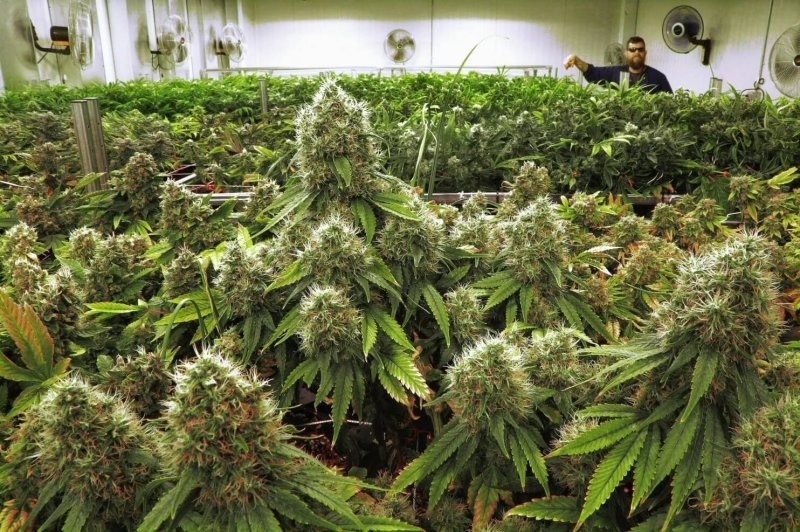As biotechnology embraces the legal cannabis industry, not a few of its executives are grappling with a dilemma: what will it mean if they make the drug much easier to get?
So far, 33 US states have legalized medical marijuana, and 10 of these also permit recreational use ….
A dozen synthetic-biology companies, including Amyris, Ginkgo Bioworks, Hyasynth, Farmako, and Intrexon, say they are moving the cannabis genes into bacteria, oozing algae, or fermenting vats of yeast.
…
It remains to be seen whether biotech reactors can really make cannabinoids more cheaply than the fast-growing plant (it’s called “weed” for a reason). As well as THC, the psychoactive chemical that gets people high, and CBD, which has been approved in the US for treating certain kinds of epilepsy, marijuana contains another 100 or so far less concentrated cannabinoid molecules, which remain little studied because the plant has been illegal.
…
Cheap, pure supplies of cannabinoids could lead to new types of medicine and “wellness” products but also—if they’re added to things like soft drinks, cookies, and vaping fluids—to a big change in who can get high, when, and how.
Read full, original post: How biotech went from “no way” to payday in the cannabis business































